Audio Archaeology, 1973: The Legacy of Jobriath as Morrissey, Numan, Def Leppard Remember
Misunderstood or mis-managed? The first openly gay rocker to sign with a major label should be someone you've heard of before. And, then there's his music.
Morrissey’s clearly a fan. He covered a 1973 Jobriath song, “Morning Starship,” in 2019 (with Grizzly Bear’s Ed Droste):
And, in 2004, the former Smiths lead singer oversaw the release of a long-awaited CD compilation called Lonely Planet Boy (named after a David Johansen song on the New York Dolls’ 1973 debut album), produced by Jobriath’s original, early ‘70s producer, Eddie Kramer.
Related: Two 1973 weekends spent with the Dolls, then meeting their producer, Todd Rundgren, five years later:
Bruce Wayne Campbell, known professionally as Jobriath, was born in King of Prussia, Pennsylvania, 21 miles NW of Philadelphia, in 1946, but passed away at the age of 36 in 1983.
Little-known by rock fans, but revered and influenced by many in the biz, Jobriath was one of the first internationally famous musicians to die of HIV/AIDS (August 1983 at age 36). He’s also the first openly gay rocker who was signed to a major label. In fact, Jobriath once proudly described himself as “rock’s truest fairy.”
Contenders for the Title
David Bowie, Lou Reed, T. Rex’s Marc Bolan, the Dolls…even Iggy Pop, Steve Harley, Sweet, and Slade, all danced around androgyny, but largely took it only as far as eyeliner, some shadow, black nail polish, and of course, a heavy dose of relatively non-threatening glitter.
Only Bowie wore a dress (designed by fashion designer, Michael Fish), on the UK issue of The Man Who Sold the World (above), as well as some dates on his subsequent 1971 US tour. As artists, they knew varying degrees of homophobia were still rampant in early-’70s America, and it effectively kept them from being, or more to the point, looking, fully and outrageously, gay, even if they felt so compelled, artistically or otherwise.
Surely, a commercial death knell lurked.
Related: Discover where I drove international rocker, Tom Robinson (“Sing if You’re Glad to Be Gay”) in downtown Houston, post-show, 1978:
In the Beginning: From Army to Hair
Bruce combined the Bible’s Old Testament Job (long “o”) and Biblical Philistine giant, Goliath, to create his new “Jobriath” name. Developing a new love for folk music in the mid-’60s, the newly-dubbed Jobriath formed a short-lived folk trio right after high school in Pennsylvania.
After one semester in Temple University’s music program, Jobriath dropped out, admittedly lacking the necessary study skills. He was dating a younger blonde girl he met at his Presbyterian church at this point, according to a tumblr chronology.
Drafted into the Army in 1966, he decided to enlist instead, and entered Basic Training. He went AWOL within months, changed his name to Jobriath Salisbury (his mother’s maiden name), and moved to Los Angeles, where he landed a role in the L.A. production of Hair, now sporting long blond locks past his shoulders. He was even offered the role of “Woof” in the Broadway production.
After forming soft rockers, Pidgeon, in 1969 as their singer/guitarist/keyboardist, Salisbury and the band were signed to Decca Records (now Universal Music Group, formerly MCA).
One largely unheard album followed, plus a single with two non-LP songs. Pidgeon disbanded quickly, and Jobriath found himself on the precipice of a startling and anticipated breakthrough:
A Brandt-New Key
Instrumental to this next career step was the introduction of the late Jerry Brandt to Jobriath’s career. Brandt, in 1964, was the first promoter to usher The Rolling Stones into the States. He passed away at 82 in January 2021.
“The irony is that no matter how many people will say bad things about me, everybody still likes me. I owe people $5,000 and they love me.”—Jerry Brandt
A healthy mix of shady character, conniving deal-maker, carnival barker, and sought-after entrepreneur, Brandt had worked in the mailroom at the William Morris Agency, and managed to work his way up to head the talent and booking agency’s pop music division in the early ‘60s.
While it’s possible there’d be no Jobriath without Jerry Brandt, it could also be argued that the singer’s career was torpedoed prematurely and unnecessarily by the fast-talker from Brooklyn. Brandt not only couldn’t understand the sporadic brilliance of his client, but also seemed to be mystified by how to effectively present an artist gifted with the multiple theatrical talents of singing, dancing, costuming, drama, and staging.
In mid-December 1972, Brandt (Carly Simon’s former manager), reportedly overheard a Jobriath solo demo tape being played by the legendary music mogul, Clive Davis, at Columbia Records’ main New York offices. (Davis, as a momentary aside, despite two marriages and four kids, came out as bisexual in his 2013 autobiography).
Davis, never without a musical opinion, rejected the Jobriath tape out of hand as “mad, unstructured and destructive to melody.” Brandt, though, was quick to defend his new young charge.
Jobriath, familiar with Davis’ well-earned legendary legacy, reportedly remarked, “That coming from a man who discovered both [influential punk poetess who signed with Davis’ new Arista label in ‘75, and current fellow Substack scribe] Patti Smith and Barry Manilow...so much for sanity and structure!”
Jobriath, apparently, suffered fools reluctantly.
Brandt hunted down a skinny, dirty, and unemployed Jobriath in southern California, at times living as “kept boy,” Joby Johnson in a house in Laurel Canyon, while also reportedly living for a time in an unfurnished, one-bedroom apartment while working as a West Hollywood prostitute, no doubt favoring Santa Monica Boulevard.
Brandt: “In walked this beautiful creature dressed in white. I said, ‘Why don’t you come out to Malibu and hang out?’ Brandt and Jobriath agreed on a ten-year management deal.
“It’s gay time, and I think the world is ready for a true fairy. My fairy is a writer, a composer, an arranger, a singer, a dancer…”—Jerry Brandt, 1973
This led to Jobriath signing a mammoth half-million-dollar solo deal with Elektra Records (at least, that’s what Brandt loved to brag; some reports claim the figure was closer to $30,000). Elektra released his debut in 1973. His two-album deal was certainly massive in early-’70s dollars, and likely the largest ever at the time (if accurate), and Brandt announced proudly to the press he had discovered “America’s answer to Bowie.”
With Brandt and Jobriath dubbing the singer as the “True Fairy of Rock ‘n’ Roll,” limitations in a homophobic early-’70s America quickly became evident, especially when tour destinations were discussed.
“This was to have such negative consequences as to prevent us from performing in certain cities, like Detroit, Cleveland and Cincinnati, because the demographic of the population was so homophobic, that the band’s well-being would be at risk,” former Jobriath keyboardist, Hayden Wayne, now 72, and a classical composer, once said.
For a deeper dive, see and hear Hayden Wayne’s 2-plus hour 2009 YouTube interview about his Jobriath and Jerry Brandt experiences by clicking here.
Interestingly, if not coincidentally, Elektra president, David Geffen (who signed Jobriath, who by now had added “Boone” as his last name, referring to fellow Pennsylvanian, Daniel Boone, as a “spiritual relative”), came out as gay in 1992.
Born to Run…Into the Ground
The hype machine was put into overdrive to promote Jobriath Boone and his debut album. Bus posters, Times Square billboards, and full-page glossy magazine ads became desperate features of the oversaturated hype used to promote Jobriath, and helps to easily explain the bitterness that followed the eventual dissolution of the professional relationship between Brandt and Jobriath, lurking just a scant two years away.
Reviews for his self-titled debut album were all over the place: From Rolling Stone’s bizarrely off-base evaluation that Jobriath had “talent to burn,” to Cashbox (record industry trade publication) and their flaccid assertion that the album was “one of the most interesting of the year,” those glowing reviews failed to light a fire under radio programmers or the retail aisles.
Another trade rag, Record World, even heralded Jobriath as “brilliantly incisive,” whiffing wildly on their prediction that he was “a true Renaissance man who will gain a tremendous following.” Esquire, as it turns out, was decidedly prescient and accurate with their “hype of the year” tag.
Nothing turns off a potential audience than a clearly paid-for and cynically grinding hype machine. Just ask a Born to Run-era Bruce Springsteen, with his twin Time and Newsweek cover stories in 1975, and his new moniker, “The Boss,” which he hated.
Add to that, Brandt and his loose-lipped hyperbole: “Elvis, the Beatles, and Jobriath,” as well as openly bragging that the two had booked flights on Pan American Airlines’ first passenger plane flight to the moon, and potential fans stayed away from record stores in droves.
“[Jobriath] was a romantic soul, really.”—Eddie Kramer
The debut album was co-produced by Jobriath and a 30-year-old Eddie Kramer, in one of his first studio projects. The South African’s star-studded resume since has included production and/or engineering credits for the likes of The Beatles, Led Zeppelin, Bowie, Eric Clapton, Jimi Hendrix, KISS, the Rolling Stones, and many others.
Kramer, in fact, complimented Jobriath, at the time, in UK rock mag Mojo as “a romantic soul, really. He wanted orchestrations like old film music, though he knew nothing about scoring. So he bought a book on orchestration, and within a week he’d come up with scores of a haunting quality.”
Creature Feature
Apparently willing to beat a dead horse (and fulfill an Elektra contract), the Jobriath sophomore effort, Creatures of the Street was released a scant six months later in 1974. Jobriath and Kramer twiddled the knobs on this one as well, which included guitarist Peter Frampton and Led Zeppelin’s bassist, John Paul Jones, as guest musicians.
Simultaneously shocking and understandable, the second record received virtually no record company promotion or attention at radio, so, predictably, it tanked, as Jobriath succumbed to more and more drug and booze binges.
Hayden Wayne, Jobriath’s keyboardist in the Creatures, recalled him as “so stoned, he was literally moving in a blur.” Brandt even remarked to Advocate columnist, Steve Gdula at one point, “He was a total wreck.”
A successful U.S. tour followed the album’s release, with many shows sold-out and well-attended. Nevertheless, Brandt and Geffen pulled their tour support mid-way through, although Jobriath brazenly continued to bill Elektra for expenses, as he and his band completed the tour!
“I can imitate anyone or anything…from Garbo to a strip of bacon.”—Jobriath, onstage, September 1974, last concert, U. of Alabama
In January 1975, a deflated Jobriath retired from show biz, and moved into New York City’s famed Chelsea Hotel. He attempted to re-kindle his acting career, and was even invited to audition as Al Pacino’s lover in “Dog Day Afternoon,” the role Chris Sarandon eventually filled.
Never one to sidestep pretentiousness, Jobriath adopted the sobriquet, “Cole Berlin” (a nod to both Cole Porter and Irving Berlin). He worked as a cabaret singer at New York’s Covent Garden, as well as clubs and cabarets, again augmenting his income with occasional prostitution. Taking requests as Berlin, he nevertheless refused to perform his Jobriath material.
“World Without End”
By late 1981, Jobriath was exhibiting signs of having contracted AIDS. Weak and gaunt, he still managed to contribute to Chelsea’s centennial birthday celebrations in November 1982.
Jobriath died on August 3, 1983, one week after the end of his original 10-year contract with Jerry Brandt expired. Job’s father was at his side. Cremated, his mother took delivery of his ashes for a time. The urn was later buried in a funeral plot at Valley Forge Memorial Gardens in his birthplace of King of Prussia, PA.
Brandt, who never once mentioned Jobriath in his 2014 autobiography, passed away January 16, 2021, in Miami Beach, of COVID-19 and pneumonia-related causes, two weeks away from his 83rd birthday.
“My philosophy? Have fun, make a buck, and when the D.A. says, ‘Not guilty,’ don’t applaud.”—Jerry Brandt
Personal Recollection & The Midnight Special
At the time Jobriath broke, I was a high schooler, a record junkie and a voracious reader of all things rock-press in 1973. I was keenly aware of and remember Jobriath and his media blitz (such was his PR machine, run amok at the time to complete overexposure), and his comparisons, made by some, of Bowie.
While I didn’t buy any of his records, and a dearth of local radio play eliminated that potential exposure, many record reviews revealed enough to me about what he may have sounded like in his two years and two Elektra LPs....which was something like this—his 1974 debut performance on NBC’s late-night The Midnight Special, introduced here by the visibly uncomfortable Gladys Knight, who somehow managed to mangle his name, which must have infuriated both Brandt and Geffen.
Sidebar: While in L.A. to tape the show, Jobriath was put up at the posh Beverly Wilshire Hotel in Beverly Hills, while his backing band was relegated to the notorious West Hollywood Tropicana Hotel, just up the street from the landmark Troubadour on Santa Monica Blvd, Job’s old street-walking site…so seedy was the $210-a-week Trop, in fact, that even Tom Waits once called it home!
So, Job and band hit call-time for The Midnight Special punctually (and from their respective inns), at NBC’s Burbank studios. After make-up and costuming, it was show-time! Cue Gladys:
….and, with Jobriath designing all his costumes, from the same show, his second performance, featuring “Rock of Ages,” a song quickly substituted for his “Take Me, I'm Yours,” deemed by the show's producers as too bondage-laden:
Enter Morrissey and Others, Stage Left
Through the decades since his death, rockers influenced by his lyrics, looks, and/or wardrobe, have opened up about their love for and appreciation of Jobriath, his music, and his theatricality.
Morrissey, Def Leppard, The Pet Shop Boys, Ann Magnuson, and Gary Numan, are among those who have all cited Jobriath as an influence.
“He likes lost causes. Jobriath is somebody that Morrissey can possess completely,” Morrissey biographer Mark Simpson said in 2004, at the time the singer was prepping Lonely Planet Boy, a Jobriath CD compilation re-issue that same year:
“There aren’t many Jobriath fans around,” Simpson continued, “so he can appoint himself as the secretary of his metaphorical fan club. Morrissey has always been interested in people who have fallen off the edge of the world – and Jobriath certainly has.”
“It may have come from a Jobriath song in the seventies, as I was a big Jobriath fan.”—Gary Numan
On Tubeway Army’s 1979 Replicas LP, Gary Numan composed the first single from the album, “Down in the Park.” It includes the lyric: “Come to Zom-Zom’s,” which recalls the ‘zum-zum’ of Job’s ‘Scumbag.’” Numan later copped to its likely genesis: “It may have come from a Jobriath song in the seventies, as I was a big Jobriath fan.”
Def Leppard, from the 2006 “Yeah!” album (Wal-Mart exclusive bonus EP), covered Jobriath’s “Heartbeat,” the opening track off his second album. Leppard’s lead singer, Joe Elliott, is a longtime fan of Jobriath as well as all things glitter’n’glam. He even fronted a Mott the Hoople tribute band, and nicked a Jobriath album from a local record shop as a kid!
In a 2018 interview with Yahoo! Entertainment, Elliott discloses what prompted his Jobriath fandom: “It was exactly what I wanted it to be. It was art-rock. It was very musical, very different to your standard Sweet, or your Three Dog Nights, or your Grand Funk Railroads, or whatever…,” Elliott recalls.
“It had an airiness to it, and there was plenty of piano, and … I just loved his voice. To me, to sum up Jobriath, it was Ziggy Stardust sung by Mick Jagger.”
Finally, this revealing and informative trailer (with interviews from several whom he influenced) from the 2012 Jobriath doc: Jobriath A.D.:






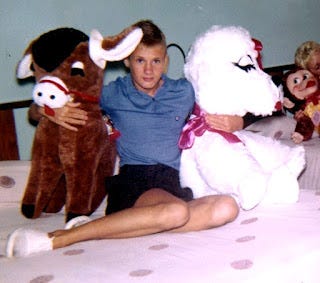

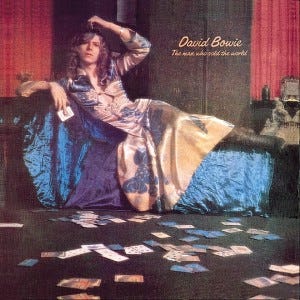
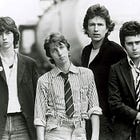

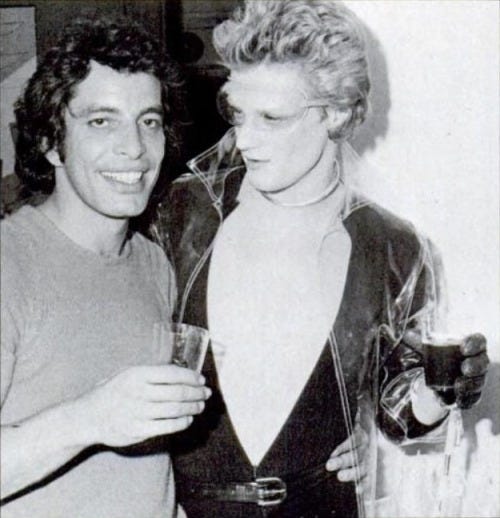


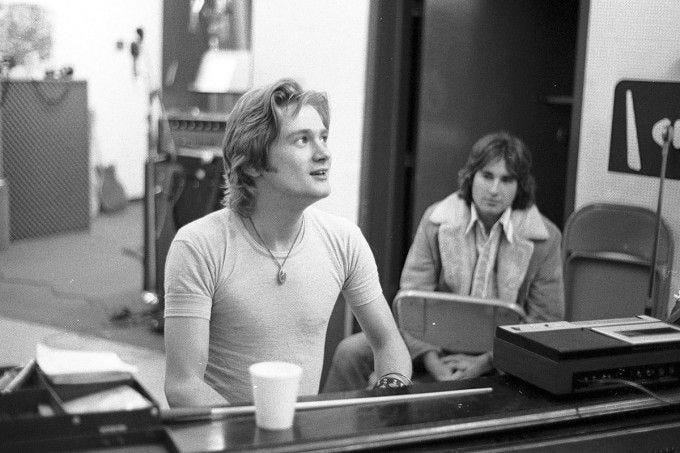
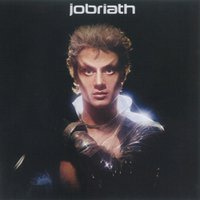


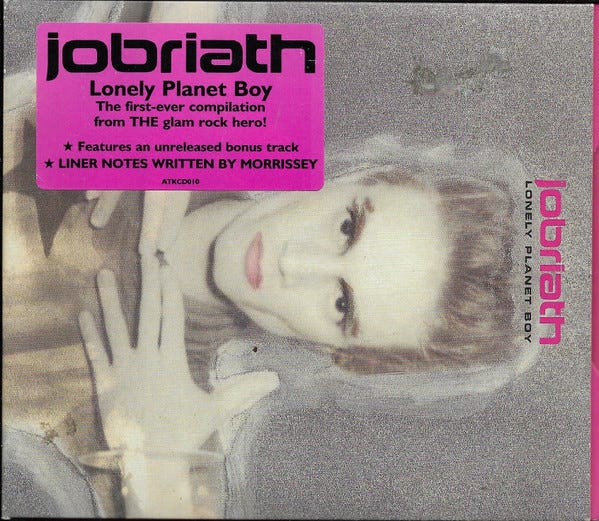
I had never heard of Jobraith - so once again your articles are teaching more about music. This was a great read, and I have to say I am consistently impressed by how well researched, written, and presented your articles are. Thanks
Holy shit. That was an amazing read. I’m so caught up in the story that I’m giddy. And streaming his music and dancing. Thank you. Thank you. Thank you. 🙏🏻